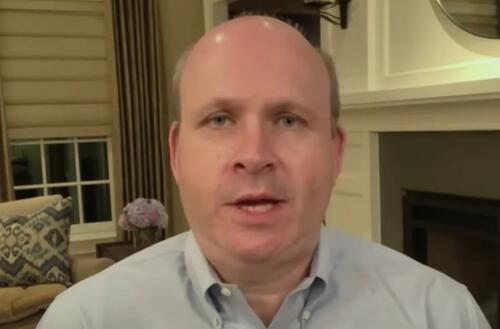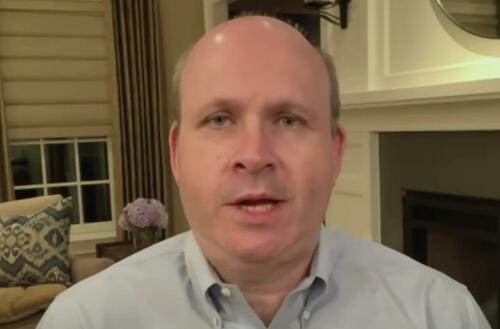Marc Elias And The Demise Of The Faux “Save Democracy” Movement
Marc Elias is back and that is not good news.
Despite the Pennsylvania race being called by the AP almost a week ago, Elias is working with Sen. Bob Casey (D-Pa.) to try to change that outcome.
It is not surprising that Casey was left with Elias.
For many, Elias is a notorious figure who captures the hypocrisy of the “save democracy” crowd. Elias is an attorney who has been sanctioned in court and denounced by critics as a Democratic “dirty trickster” and even an “election denier.”
Despite his checkered history, Elias remains the go-to lawyer for many Democratic campaigns.
It was Elias who was the general counsel to the Clinton presidential campaign when it funded the infamous Steele dossier and pushed the false Alfa Bank conspiracy. (His fellow Perkins Coie partner, Michael Sussmann, was indicted but acquitted in a criminal trial.)
During the campaign, reporters asked about the possible connection to the campaign, but Clinton campaign officials denied any involvement in the Steele Dossier. When journalists discovered after the election that the Clinton campaign hid payments for the Steele dossier as “legal fees” among the $5.6 million paid to Perkins Coie, they met with nothing but shrugs from the Clinton staff.
New York Times reporter Ken Vogel said at the time that Elias denied involvement in the anti-Trump dossier. When Vogel tried to report the story, he said, Elias “pushed back vigorously, saying ‘You (or your sources) are wrong.’” Times reporter Maggie Haberman declared, “Folks involved in funding this lied about it, and with sanctimony, for a year.”
Elias was back when John Podesta, Clinton’s campaign chairman, was questioned by Congress on the Steele dossier and denied categorically any contractual agreement with Fusion GPS. Sitting beside him was Elias, who reportedly said nothing to correct the misleading information given to Congress.
The Clinton campaign and the Democratic National Committee were ultimately sanctioned by the FEC over the handling of the funding of the dossier through his prior firm. (I previously discussed the comparison to the criminal charges against Trump for treating the mislabeling of payments as “legal expenses.”).
The Democratic National Committee reportedly later cut ties with Elias.
Nevertheless, other Democrats continued to hire Elias despite his checkered past. He unsuccessfully led efforts to challenge Democratic losses. Elias also was the subject of intense criticism after a tweet that some have called inherently racist.
Elias continued to be accused of not defending but thwarting democracy. In Maryland, Elias filed in support of an abusive gerrymandering of the election districts that a court found not only violated Maryland law but the state constitution’s equal protection, free speech and free elections clauses. The court found that the map pushed by Elias “subverts the will of those governed.”
His work for New York redistricting was ridiculed as not only ignoring the express will of the voters to end such gerrymandering but effectively negating the votes of Republican voters.
In 2024, the Chief Judge of the Western District of Wisconsin not only rejected but ridiculed the Elias Law Group for one of its challenges. Judge James Peterson (an Obama appointee) said that the argument “simply does not make any sense.”
The point is that it does not have to make sense.
Democratic campaigns fund Elias and his various profitable enterprises to seek to change the outcome of called elections.
That is the case with Casey. Trump won Pennsylvania’s presidential election, and Dave McCormick received tens of thousands more votes. With 99 percent of the votes counted, even Senate Majority Leader Chuck Schumer relented in reversing his decision to bar McCormick from the orientation for new senators.
What is most striking is the strategy of Elias.
The state has roughly 87,000 provisional ballots to count, but those ballots were generally challenged for defects or suspected invalidity. Even if they were to count, it is unlikely that they will break so overwhelmingly for Casey to overturn the result. Indeed, only about 30,000 were coming from Casey strongholds in Philadelphia and Allegheny County.
However, Elias just wants to get within .5% to trigger a mandatory recount.
It is reminiscent of Trump demanding an additional recount in Georgia, maintaining on a call that all he needed was to “find 11,780 votes” to change the outcome. All Elias needs to do is find 40,000 votes.
Of course, when Trump made that comment, Elias and Democrats insisted that he was seeking to defraud the state by demanding a new recount.
It is not the first time Elias seemed to morph into those he denounced. Previously in New York, Elias unsuccessfully sought to flip the result in a congressional race by claiming that the Dominion voting machines somehow switched or changed votes. Sound familiar?
Casey will eventually have to accept defeat, but Elias will remain the break-the-glass option for Democratic campaigns when other lawyers have lost the appetite for challenging election results.
Jonathan Turley is the Shapiro Professor of Public Interest Law at George Washington University. He is the author of “The Indispensable Right: Free Speech in an Age of Rage.”
Tyler Durden
Wed, 11/13/2024 – 12:35


